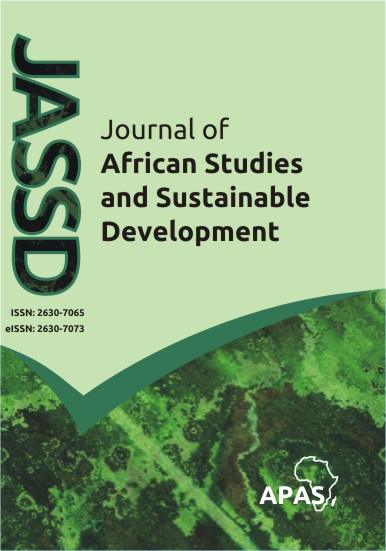 Journal of African Studies and Sustainable Development (JASSD) (Vol. 6 No. 3, 2023)
RELIGIOUS IMPLICATIONS OF THE TALIBAN TAKEOVER OF AFGHANISTAN FOR GLOBAL PEACE IN THE MODERN WORLD
Journal of African Studies and Sustainable Development (JASSD) (Vol. 6 No. 3, 2023)
RELIGIOUS IMPLICATIONS OF THE TALIBAN TAKEOVER OF AFGHANISTAN FOR GLOBAL PEACE IN THE MODERN WORLD
ABSTRACT
Afghanistan, one of the countries in the middle-east over the years has been known for incessant religious conflicts, extremism, and violence. It has also served as a home for different shades of Islamic movements like the Shiite and sunni Muslims. Some of these militant groups are founded with the belief that they are in solidarity with the people against all manner of oppression, impoverishment, and deprivation of sustainable development. But instead, their real motive appears to be an establishment of Islam as a state religion. To them, western influence and control through especially education and culture are sacrilegious as stipulated by Islamic teachings and belief system. And so this western dominance and lifestyle must be resisted at all cost. It is the opinion of this study that the Taliban Islamic fundamentalist group was established with this notion of putting to an end the perceived westernization of Afghanistan by the west. The study believes that this development with its attendant implications has unsettled the peace of the global community. This peace as revealed by this article has not only eluded the Afghan nation since the movement started as can be seen through mass executions without judicial trial, barring of women from schools and work places, but also the global community where there still exist religious intolerance, unrest, and tension. The study therefore recommends that in as much as no country can achieve sustainable development without peace, the international community has a duty to ensure systematic intelligence and provide guidelines toward appropriate action in some of these most entrenched conflict zones of the world.

